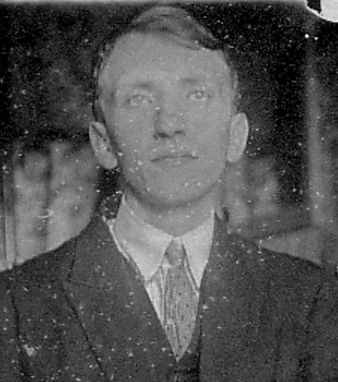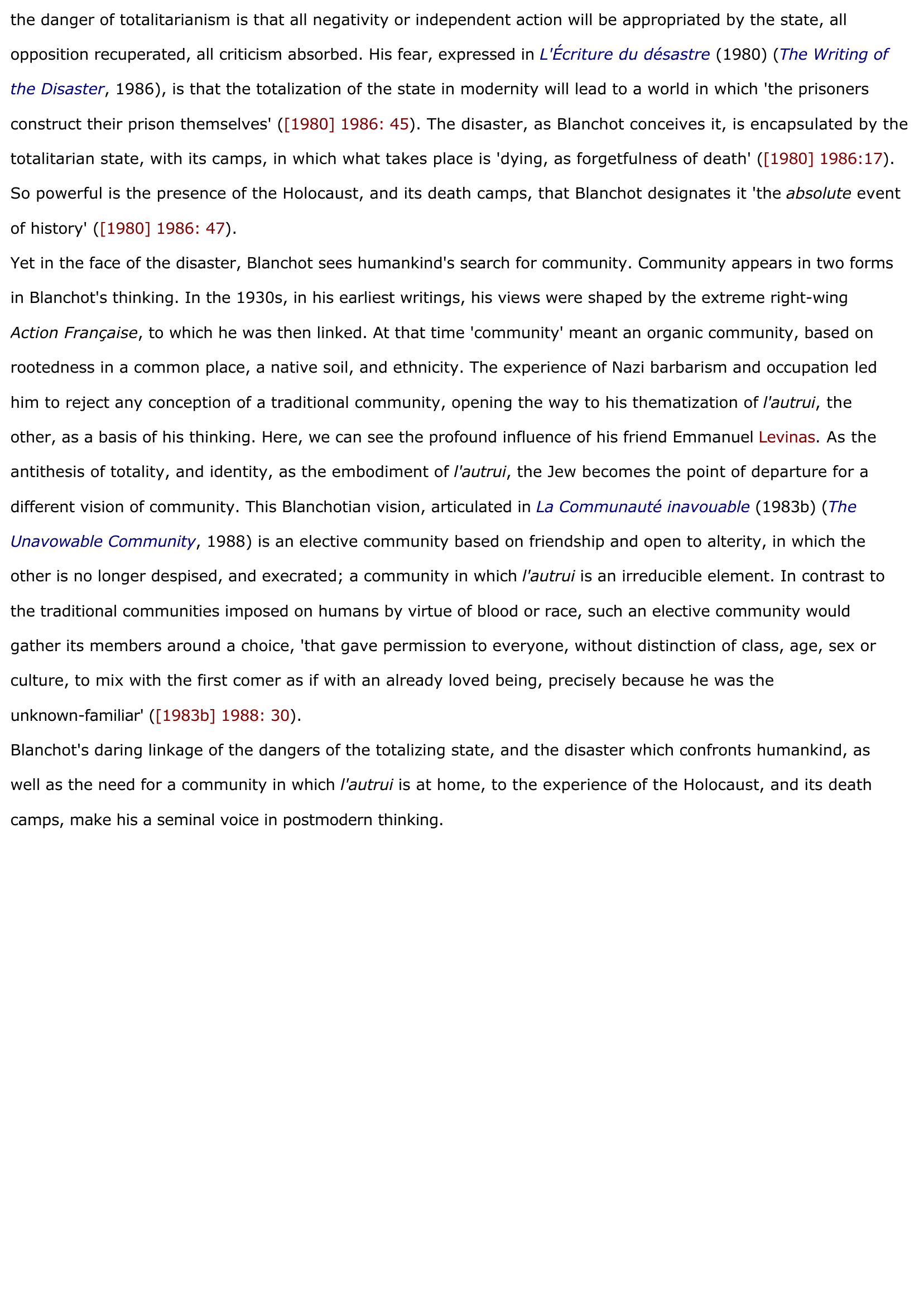Blanchot, Maurice
Publié le 22/02/2012
Extrait du document


«
the danger of totalitarianism is that all negativity or independent action will be appropriated by the state, all
opposition recuperated, all criticism absorbed.
His fear, expressed in L'Écriture du désastre (1980) ( The Writing of
the Disaster , 1986), is that the totalization of the state in modernity will lead to a world in which 'the prisoners
construct their prison themselves' ( [1980] 1986: 45 ).
The disaster, as Blanchot conceives it, is encapsulated by the
totalitarian state, with its camps, in which what takes place is 'dying, as forgetfulness of death' ( [1980] 1986:17 ).
So powerful is the presence of the Holocaust, and its death camps, that Blanchot designates it 'the absolute event
of history' ( [1980] 1986: 47 ).
Yet in the face of the disaster, Blanchot sees humankind's search for community.
Community appears in two forms
in Blanchot's thinking.
In the 1930s, in his earliest writings, his views were shaped by the extreme right-wing
Action Française , to which he was then linked.
At that time 'community' meant an organic community, based on
rootedness in a common place, a native soil, and ethnicity.
The experience of Nazi barbarism and occupation led
him to reject any conception of a traditional community, opening the way to his thematization of l'autrui , the
other, as a basis of his thinking.
Here, we can see the profound influence of his friend Emmanuel Levinas .
As the
antithesis of totality, and identity, as the embodiment of l'autrui , the Jew becomes the point of departure for a
different vision of community.
This Blanchotian vision, articulated in La Communauté inavouable (1983b) ( The
Unavowable Community , 1988) is an elective community based on friendship and open to alterity, in which the
other is no longer despised, and execrated; a community in which l'autrui is an irreducible element.
In contrast to
the traditional communities imposed on humans by virtue of blood or race, such an elective community would
gather its members around a choice, 'that gave permission to everyone, without distinction of class, age, sex or
culture, to mix with the first comer as if with an already loved being, precisely because he was the
unknown-familiar' ( [1983b] 1988: 30 ).
Blanchot's daring linkage of the dangers of the totalizing state, and the disaster which confronts humankind, as
well as the need for a community in which l'autrui is at home, to the experience of the Holocaust, and its death
camps, make his a seminal voice in postmodern thinking..
»
↓↓↓ APERÇU DU DOCUMENT ↓↓↓
Liens utiles
- TRÈS-HAUT (Le). Maurice Blanchot (résumé & analyse)
- FAUX PAS Maurice Blanchot (résumé)
- CELUI QUI NE M’ACCOMPAGNAIT PAS. Maurice Blanchot (résumé)
- Le Livre à venir de MAURICE BLANCHOT (résumé)
- Arrêt DE MORT (L') de Maurice Blanchot

































